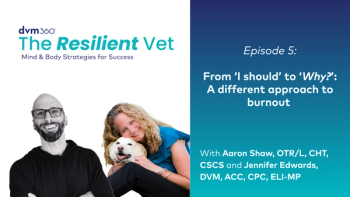
Two Tips for Easing Brain Pain: More Yogurt and Less Caffeine
Research shows that eating yogurt and decreasing caffeine intake can decrease anxiety, sadness and depression, which may help improve resilience to compassion fatigue.
“There is no way I’m giving up my morning cup of joe,” you say?
Okay, okay. Settle down. Let’s start with some evidenced-based reasons why eating yogurt is part of my daily routine (and why you may want it in yours), and we’ll tackle the coffee later.
Yogurt and Your Microbiome
Did you know that your gut communicates with your brain via the microbiome? That’s right. The microbes in your gut talk to your brain via the immune system, neurohormones, gut hormones and bacterial migration, the latter of which stimulates inflammatory cytokines.
This communication is a two-way street. The vagal nerve and the hypothalamic-pituitary-adrenal (HPA) axis impact both the brain and gut and vice versa. The brain talks back to the microbiome via glucocorticoids, the production of anti-inflammatory cytokines and other processes.
RELATED:
- Strategies to Manage Stress In the Veterinary Practice
- 10 Keys to a Happier Life
It makes a lot of sense. Think about how many pets and people have stress-related GI problems. For a fascinating, illustrative discussion of this gut/brain pillow talk and to learn more about it, check out the open-source review by
According to the National Institutes of Health Human Microbiome Project, 1 to 3 percent of your body mass is microbiome. You can think of your microbiome as your personal pet to manage, about the size of rat or small cat. Both reseeding and feeding your microbiome “pet” are important. For probiotics — the good gut bugs — to flourish, it is important to ingest appropriate prebiotics, the plant fibers and other nutrients that nourish and stimulate probiotic growth. Why? Properly fed gut microbes can produce enough gamma-aminobutyric acid, serotonin, dopamine and norepinephrine to their affect the neurobiology of their animal host.1-3
A new term, “psychobiotics,” now encompasses both the good bugs (probiotics) and the nutrients that feed them (prebiotics), both of which, upon ingestion, contribute to the psychological effect.1
Over the past few years the number of studies investigating the psychological effect of gut microbes has skyrocketed. A couple studies regarding depression and sadness really stand out. Both tested various species of Bifidobacterium and Lactobacillus, the most studied and useful probiotic genera. One tested depressed people and found that probiotic-treated folks had greater improvement in depression scores than the placebo-treated group.4 The other study tested healthy people and found that probiotic-treated individuals had reduced sadness, in particular less rumination and aggressive cognition, compared with placebo-treated participants.5
What’s the take-home here? Look for active bifidobacteria and lactobacilli cultures when picking out yogurt.
Cutting Out Caffeine
Now how about that caffeine? You probably know that caffeine is the most widely used psychoactive drug in the world and that it improves memory and reaction time. But what you may not know is that caffeine has also been shown to have some negative effects:
- It increased stress in medical students during test taking as evidenced by increased heart rate, blood pressure and cortisol level in a placebo-controlled study6
- It increases anxiety, sleep disorders, eating disorders, schizophrenia and substance use disorder7
- It increases sympathetic nervous system activity, which delays autonomic nervous system recovery8
When we get wound up and our HPA axis goes haywire, having caffeine on board increases our stress cortisol level and our recovery time to more parasympathetic tone and HPA axis balance. Our tendency to suffer from sleeping disorders, eating disorders and substance use disorder also increases.
Many years ago, I quit drinking coffee because I had trouble sleeping. Tapering helped avoid withdrawal headaches. First I stopped at 5 p.m., then 3 p.m., then noon, and finally I cut it out altogether. I’ve adapted.
According to Gentry,9 compassion fatigue is exacerbated by excessive sympathetic nervous system activity. Learning how to increase parasympathetic tone, especially when going into a situation that may trigger compassion fatigue symptoms, has been a primary tool of recovery from compassion fatigue and development of resilience. Caffeine is counterproductive to that effort.
I encourage you to at least consider the impact that caffeine may be having in your life. You might even do a test: Taper your caffeine use, and evaluate the result. Besides anxiety, sadness and depression, what have you got to lose?
Dr. Tad Coles, a certified compassion fatigue professional (CCFP) and Missouri recovery support specialist-peer (MRSS-P), is a well-being advisor, medical writer, and veterinary practitioner. He founded Compassion Fatigue Coach in Overland Park, Kansas, and enjoys helping health care professionals prevent and bounce back from burnout, compassion fatigue, and substance use disorder.
References:
- Sarkar A, Lehto SM, Harty S, et al. Psychobiotics and the manipulation of bacteria—gut–brain signals. Trends Neurosci. 2016;39(11):763-781.
- Foster JA, Lyte M, Meyer E, Cryan JF. Gut microbiota and brain function: an evolving field in neuroscience. Int Journal Neuropsychopharmacol. 2016;19(5).
- Huang R, Wang K, Hu J. Effect of probiotics on depression: a systematic review and meta-analysis of randomized controlled trials. Nutrients. 2016;8(8).
- Akkasheh G, Kashani-Poor Z, Tajabadi-Ebrahimi M, et al. Clinical and metabolic response to probiotic administration in patients with major depressive disorder: a randomized, double-blind, placebo-controlled trial. Nutrition. 2016;32(3):315-320.
- Steenbergen L, Sellaro R, van Hemert S, Bosch JA, Colzato LS. A randomized controlled trial to test the effect of multispecies probiotics on cognitive reactivity to sad mood. Brain Behav Immun. 2015;48:258-264.
- Pincomb GA, Lovallo WR, Passey RB, Brackett DJ, Wilson MF. Caffeine enhances the physiological response to occupational stress in medical students. Health Psychol. 1987;6(2):101-112.
- Winston AP, Hardwick E, Jaberi N. Neuropsychiatric effects of caffeine. Adv Psychiatr Treat. 2005;11(6):432.
- Bunsawat K, White DW, Kappus RM, Baynard T. Caffeine delays autonomic recovery following acute exercise. Eur J Prev Cardiol. 2015;22(11):1473-1479.
- Gentry JE. Compassion fatigue: a crucible of transformation. J Trauma Pract. 2002;1(3-4):37-61.
Newsletter
From exam room tips to practice management insights, get trusted veterinary news delivered straight to your inbox—subscribe to dvm360.




